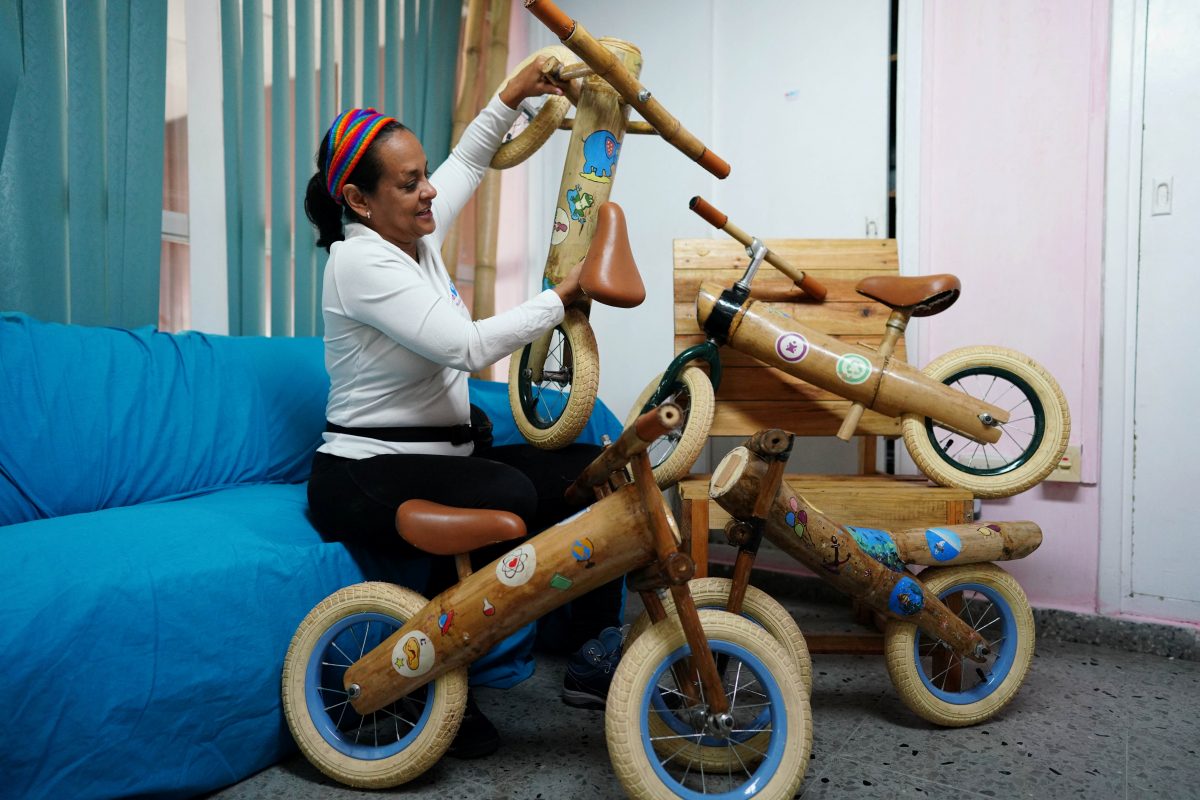HAVANA, (Reuters) – Among the classic cars, mopeds and rickshaws Cubans use to get around the capital city Havana, a new kind of ride is hitting the streets – bamboo bicycles made by a local workshop.
Velo Cuba, a bike shop and tour company, produces the lightweight, eco-friendly options as part of a program funded by the Netherlands’ embassy in the country.
The two-wheelers can already be seen being taken for a spin by visitors to the city’s zoo and along the coast.
“There are 28 species of bamboo in Cuba,” said Velo Cuba founder Nayvis Diaz. “Fortunately, here we have the two, three species needed to make these bicycles.”
The workshop has partnered with volunteers from stay-at-home mothers to the deaf community to teach residents how to make the bikes and repair them.
“It’s important for us to learn a profession,” said Yaquelin Gonzalez, who is deaf. “This will help us in the future.”
Some of those who take Velo’s course may become employed by the bike shop in the future, Diaz said, or may open their own small businesses.
Transportation and steady employment are both chronic issues in Cuba, where the economy was hard-hit by the coronavirus pandemic.
Cuba largely blames Cold War-era sanctions from the United States as holding back its economic growth, and the embargo means a lack of imported cars have caused residents to rely on decades-old models or mopeds from China, which began to arrive in the 1990s.

